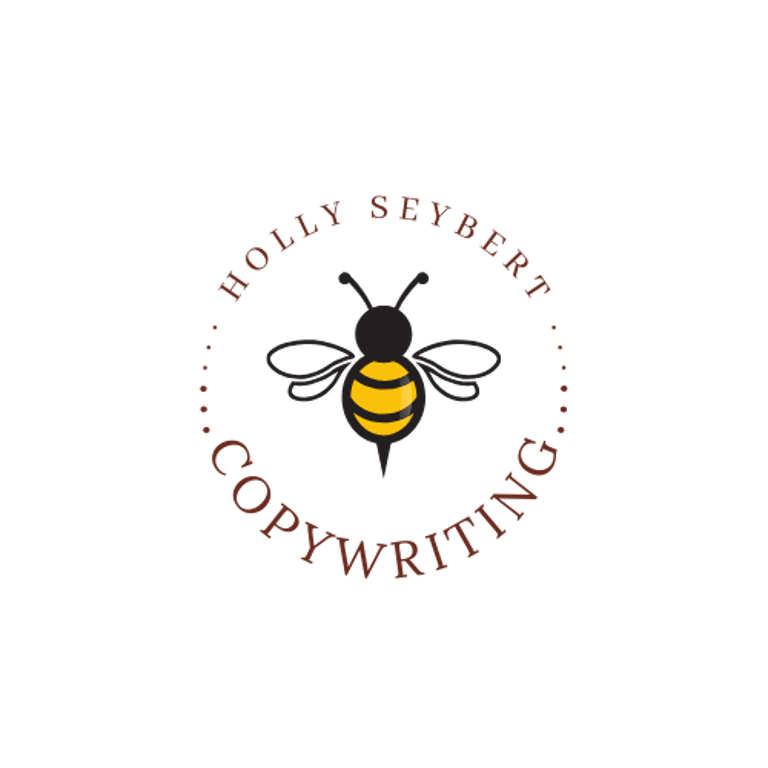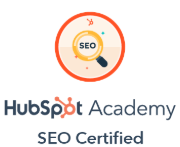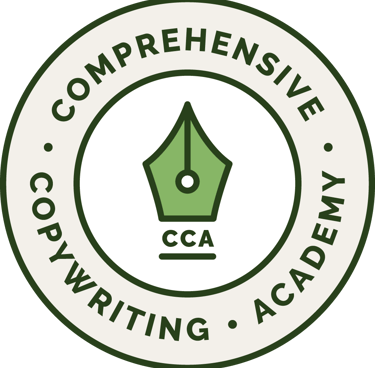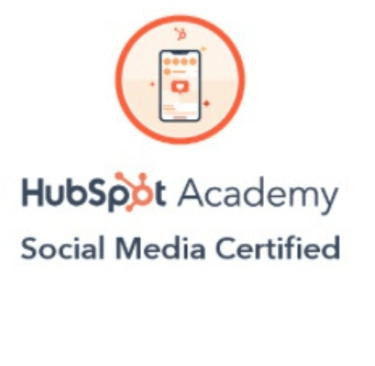The Pitfalls of Overstuffing Your Copy with Industry Jargon
Should you use fancy, schmancy buzzwords and jargon in your copy? Fast track to credibility or a big mistake? This post covers some points to consider when including industry jargon in your writing.
COPYWRITING AND MESSAGING STRATEGY
8 min read


Creating a connection through copy is simplier than you think.
In an age where attention spans can be measured in seconds (like a 🐟), many businesses make the mistake of trying to sound “official” by cramming their copy with specialized industry terms. At first glance, sprinkling in jargon may seem like a fast track to credibility.
After all, industry buzzwords suggest you know your field inside and out, right?


Overstuffing your copy with complex terminology can often alienate your audience, dilute your message, and can even harm your search engine rankings. If your primary goal is to write to convert, you need to focus on clear copywriting that communicates the value of your product or service in the simplest and most compelling terms possible.
In this post, we’ll highlight the dangers of jargon overload and illustrate how concise messaging can improve readability, increase user engagement, and help your SEO.
Understanding the perils of over used jargon is a huge step toward writing effective copy that resonates with real people (🙋♂️), not just search engines.
What Is Jargon? Why Do Businesses Use It?
Jargon is a specialized language or terminology used in a particular profession or industry.
Engineers talk about “throughput,” “bandwidth,” and “latency.” Marketers throw around acronyms like “ROI,” “CPC,” and “KPI.”
While these words are perfectly normal for professionals in that field, the average person might find them dense, confusing, or altogether meaningless.
So, why do so many businesses rely on using jargon to increase credibility?
There’s a lingering assumption that if your copy sounds technical and complicated, you’ll look like an authority. You’ll expect people to think “Hmm, they know what they’re talking about!”.
However, a genuinely skilled communicator—and thus a truly authoritative brand—knows how to break down complex ideas into plain, digestible language
The Dangers of Overstuffing Your Copy with Jargon
“Say What?”--Audience Confusion
Imagine you’re reading a blog post about the latest marketing software. Halfway in, you realize you only understand every other sentence because it’s loaded with words like “martech stack,” “hyper-personalized segmentation,” and “attribution modeling.” Even if you’re an experienced marketer, you might need to pause and parse the meaning of each term. If a less experienced reader lands on this article (after all, not everyone who owns a business is a marketing professional), they may quickly bounce away in frustration.
Out of Reach--Hurting Your Brand’s Credibility
It might sound counterintuitive, but sounding “too smart” can sometimes hurt your credibility.
Customers want to trust that you understand their problems and have real-world solutions. When you use jargon instead of clear copy, you may appear disconnected from real-life challenges or, worse, like you’re compensating for a lack of substance with complicated language. (We certainly don’t want that!)
In many markets and industries, authenticity and approachability resonate more than formality and flash. If someone visits your website or reads your marketing materials and sees nothing but buzzwords, they might assume you’re more concerned with projecting an image than solving their actual problem.
Lower Readability = Lower Engagement
Overusing industry jargon typically makes sentences longer and more complex. This directly impacts readability metrics like the Flesch–Kincaid score.
Studies show that users on the web generally scan, rather than read each line word for word. The more difficult your copy is to skim, the faster someone will leave your page.
High bounce rates and low average session durations signal to search engines that your content isn’t meeting user expectations. This, in turn, can negatively affect your ranking. If your aim is to get more eyeballs on your content, simpler language often translates to higher user retention and more organic sharing, which is a win for your SEO strategy.
Worsening SEO Performance
Modern search algorithms place a premium on user experience. Google, for instance, pays close attention to “dwell time”—the time a visitor spends on your page before returning to search results. If you fill your copy with complex, confusing jargon, users might exit your site quickly, driving down dwell time and potentially hurting your ranking.
Additionally, jargon rarely aligns with common search terms. People searching online typically use everyday language or short phrases to express what they need. A potential client might type “how to write to convert” or “best marketing tips for small businesses,” not “guidelines for optimizing B2B marketing funnels with advanced attribution modeling.”
By focusing on concise messaging, you’re more likely to include the phrases that people actually type into search engines, therefore boosting your discoverability.
The Dangers of Overstuffing Your Copy with Jargon
“Say What?”--Audience Confusion
Imagine you’re reading a blog post about the latest marketing software. Halfway in, you realize you only understand every other sentence because it’s loaded with words like “martech stack,” “hyper-personalized segmentation,” and “attribution modeling.” Even if you’re an experienced marketer, you might need to pause and parse the meaning of each term. If a less experienced reader lands on this article (after all, not everyone who owns a business is a marketing professional), they may quickly bounce away in frustration.
Out of Reach--Hurting Your Brand’s Credibility
It might sound counterintuitive, but sounding “too smart” can sometimes hurt your credibility.
Customers want to trust that you understand their problems and have real-world solutions. When you use jargon instead of clear copy, you may appear disconnected from real-life challenges or, worse, like you’re compensating for a lack of substance with complicated language. (We certainly don’t want that!)
In many markets and industries, authenticity and approachability resonate more than formality and flash. If someone visits your website or reads your marketing materials and sees nothing but buzzwords, they might assume you’re more concerned with projecting an image than solving their actual problem.
Lower Readability = Lower Engagement
Overusing industry jargon typically makes sentences longer and more complex. This directly impacts readability metrics like the Flesch–Kincaid score.
Studies show that users on the web generally scan, rather than read each line word for word. The more difficult your copy is to skim, the faster someone will leave your page.
High bounce rates and low average session durations signal to search engines that your content isn’t meeting user expectations. This, in turn, can negatively affect your ranking. If your aim is to get more eyeballs on your content, simpler language often translates to higher user retention and more organic sharing, which is a win for your SEO strategy.
Worsening SEO Performance
Modern search algorithms place a premium on user experience. Google, for instance, pays close attention to “dwell time”—the time a visitor spends on your page before returning to search results. If you fill your copy with complex, confusing jargon, users might exit your site quickly, driving down dwell time and potentially hurting your ranking.
Additionally, jargon rarely aligns with common search terms. People searching online typically use everyday language or short phrases to express what they need. A potential client might type “how to write to convert” or “best marketing tips for small businesses,” not “guidelines for optimizing B2B marketing funnels with advanced attribution modeling.”
By focusing on concise messaging, you’re more likely to include the phrases that people actually type into search engines, therefore boosting your discoverability.

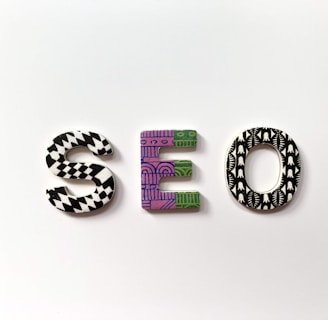
What to do Instead: How Conscise Copy Improves Audience Connection and SEO
Speaks Directly to Your Audience’s Pain Points
When you trim the fluff and speak in everyday language, you can get straight to the heart of what your audience cares about: their challenges, goals, and aspirations.
Effective copy identifies problems, and presents your product or service as the clear solution. It’s a write to convert approach that builds trust because customers feel you understand what they’re going through.
Maintains a Natural Flow
We'll scream it from the rooftops: Clear copywriting doesn’t have to be dumbed down; it just needs to be structured in a logical, reader-friendly manner.
Transition words, short paragraphs, and bullet points help break down complex ideas.
Even technical products can be explained in simpler terms that anyone can grasp. If your audience is highly specialized (e.g., software engineers), you can strike a balance by using some industry-specific terms while still making an effort to be as clear and concise as possible.
Boosts User Engagement
When your writing is easy to read, visitors stay on your website longer. They’ll scroll through your entire blog post, watch your videos, and possibly explore other pages on your site. Longer session durations and lower bounce rates tell Google that readers find your content valuable, which can help you move up the search rankings.
Moreover, users who fully grasp your message are more likely to share it on social media or forward it to a colleague. That means increased visibility, more inbound links, and heightened brand awareness.
Aligns With Searcher Intent
One of the cornerstones of modern SEO is aligning your content with the intent behind a user’s query. If someone types “clear copywriting tips” into Google, they’re likely seeking straightforward, actionable advice. By optimizing your headlines, subheadings, and body text with phrases like “clear copywriting,” “concise messaging,” or “write to convert,” you’re matching your content to what people are actively searching for. This alignment of language is exactly what search algorithms look for when recommending pages to users.


Action Items-How to Minimize the Jargon
Know Your Audience
Before you start writing, define who you’re speaking to. Are they beginners? Intermediate learners? Experts? Tailor your language to a level that makes them feel both informed and comfortable. Even if you’re addressing an expert audience, consider mixing in plain-language explanations to ensure total clarity.
Use Plain Language Alternatives
For each industry term, ask yourself, “Is there a more straightforward way to express this idea?” Instead of saying “We optimize conversion funnels with end-to-end digital transformation,” try, “We help you turn website visitors into paying customers by improving each stage of your marketing.”
Read It Out Loud
If you stumble or lose your train of thought while reading your copy out loud, it’s probably too complex. Brevity and clarity are easier to spot when you literally hear the words.
Focus on Benefits, Not Buzzwords:
Jargon often focuses on features or technicalities (“omnichannel integration,” “scalable synergy,” etc.). Instead, center your copy on customer benefits: saving time, reducing costs, increasing revenue, or eliminating headaches. This is crucial if you really want to write to convert.
Copy Example:
Before (Too Much Jargon):
“Our cloud-native platform leverages robust microservices architecture to facilitate frictionless data orchestration and real-time analytics visibility.” (...yawn)
After (Clear Copywriting):
“Our software is built in the cloud, which means it’s fast and easy to update. It brings all your data together in one place, so you can track important metrics in real time—no heavy IT support needed.” ("Sweet! This is what I was looking for" ::takes action::)
By translating each phrase into more digestible words, you increase the likelihood that your reader understands the value. You haven’t lost accuracy—you’ve just made it simpler to read.
The Bottom Line: Use Language That Converts
And one more time: Remember, clarity doesn’t mean dumbing down your expertise.
So the next time you find yourself typing out a long, complex sentence loaded with specialized terminology, pause for a moment. Ask if there’s a simpler way to convey the same idea. If there is—and there usually is—choose the clearer path.
Your audience (and Google) will thank you.
Too Busy to Figure All This Out? I'm Here to Help
Fill Out the Form Below to Book a Free Copy Assessment
